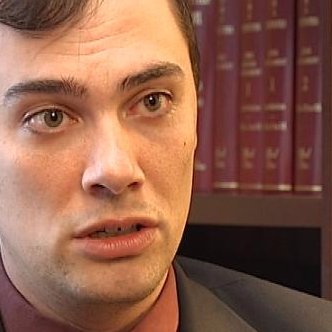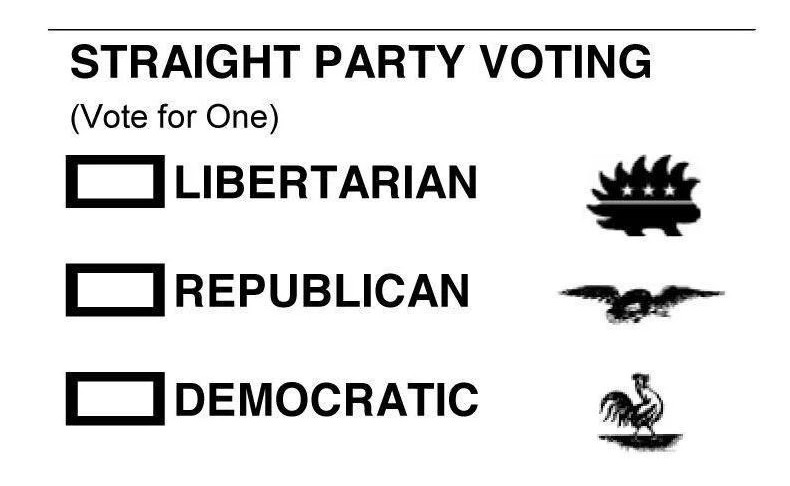Pictured: Jason W. Murphey
The Cautionary Tale of David Boren
The carefully qualified statement of Tom Cole said it all. One of the highest-ranking members of the U.S. House, the congressman for the University of Oklahoma, couldn’t incur the political risk of an unqualified statement of condolences and recognition of David Boren’s legacy.
It wasn’t supposed to be this way.
Fifty-two years ago, in January 1973, thirty-seven members of the State House of Representatives, led by Boren and a mix of idealistic Democrats and minority Republicans, stood on the principle that no longer should a system of smoke and mirrors defeat the intent and will of the people. They voted to require that every sponsored bill receive a vote in House committees, attempting to take away the power of committee chairmen to pocket a bill without a vote or even a hearing taking place.
They didn’t win the day, but as one member of the group observed, there were many House freshmen who were unwilling to support the effort because they didn’t want to cause waves or buck the system. That representative hoped that once these freshmen observed just how bad the system was, they would join the reformers.
That would never happen.
But if you’ve read this publication recently, this story sounds familiar. That’s because last January, 52 years later, a nascent but growing new generation of reformers once again had the courage to support a version of this same reform concept on the House floor as part of The Gann Plan for legislative transparency. Of course, leadership wasn’t having it, and – deja vu – many of the weak, new freshman members were again too afraid to take on leadership to do the right thing. But there’s a sense of optimism, an air of change in the House, and here’s to the belief and the hope that history will be different this time. It is after all, 52 years overdue.
But especially for those new members of the legislature, there’s so much to learn from the cautionary tale of David Boren.
Though time and time again he was defeated in his efforts, Boren’s fight for openness earned him widespread respect from voters across the state and put him in the governor’s office. From trying to strengthen the open meeting law to putting in place the state’s requirement for elected officials to disclose their outside income, to cracking down on the legalized corruption in the state treasurer’s office, to the previously mentioned reform of the House, Boren consistently advocated for openness, reform, and ethics in government. He became known as a reformer, and though he didn’t win a lot of the House votes for his proposed reforms, the people of Oklahoma were paying attention, and they put their trust in him. By 1975, he was taking the oath as governor.
Boren’s perception as a reformer was long gone by the time I arrived in the House of Representatives in 2006.
By then, Boren was known as King David, the monarch who for all intents and purposes ruled over the most important part of the fourth branch of government. Fueled by billions of dollars, the fourth branch – though not described as such in the state’s constitution – is an all-consuming behemoth that deploys an army of lobbyists to ensure it remains far beyond the reach of any of the rare, naive legislators who would seek to rein in its powers. It also efficiently consumes those regents, appointed by the executive branch, who might have the misconception that they have a role to play in keeping it accountable.
The fourth branch had a myriad of tools to get and keep legislators on board. The easy to manipulate could be had for the annual football ticket drop, but it really went much further than that. One of the highlights of the freshman class was the night out at Boren’s house, where the new lawmakers personally dined with Boren.
The strength of the fourth branch was so powerful that even in the era of reform – the period of time in which those of us who sought true, transformative reforms were allowed to propose, advance, and even from time-to-time win votes for transparency and cost-cutting measures – we knew that we weren’t allowed to touch Higher Ed. To deal with this sad truth, we joked about the Higher Ed exemption boilerplate: the magic text that said, “This good reform applies to state government EXCEPT that it won’t apply to Higher Education.”
For you see, King David’s empire at OU, and the rest of Higher Ed for that matter, was off-limits to those of us who wanted to reform government. Should we fail to exempt Higher Ed from our reform, we didn’t have a chance of getting it passed.
So, imagine the irony for me when, several years into my time in the legislature, I had my first and only substantive conversation with Boren.
Because I had a policy of refusing lobbyist gifts, I hadn’t participated in that freshman dinner at Boren’s house. So aside from seeing Boren in passing in the hall, we had never spoken at any length.
But by the fall of 2011, as our House Government Modernization efforts had reached full stride, I was asked to a meeting at Boren’s university office. Imagine my surprise, given his empire’s reputation for blocking reforms, as Boren spoke with specificity about those days in the early ‘70s and his work to change state government. For those few minutes, King David was gone, once again replaced by the heroic David who had fearlessly taken on Goliath. The irony was absolutely unmistakable. Here I was meeting with the person who I felt was probably the ultimate block to transparency, efficiency, and process modernization, and he was reminiscing about days long gone by when he was the state’s leading advocate for transparency, efficiency, and process modernization.
But that irony is nothing in comparison to the fact that, in what I suggest is an obvious attempt to block disclosure of an investigation into the specifics of important accusations about Boren’s conduct, the university has gone to great lengths to prevent a journalist from accessing documents that should be public.
I would suggest that if the university wants to truly honor the legacy of Boren – not King David, but the David who became a statewide name for taking on Goliath, in the name of transparency, even as it seemed pointless to do so – it should drop its obstruction and release the report.
It’s a strange thing about truth, it tends to find a way to make itself known, and it’s likely that the truth will be known, one way or another, but it would be a true tribute to the David Boren, the David Boren of old, to side with transparency and to simply release that report now.
Let the public, and specifically lawmakers, learn the truth and resolve that their story will be different. There’s a great beauty in truth, even when it’s, in fact, a cautionary tale.
Jason Murphey was a member of Oklahoma House of Representatives and was term-limited in 2018. He scored a perfect 100% score on the Oklahoma Conservative Index for each of 12 years he served. You can subscribe to his reports at: oklahomastatecapital.com/substack.











Latest Commentary
Saturday 31st of January 2026
Saturday 31st of January 2026
Saturday 31st of January 2026
Saturday 31st of January 2026
Saturday 31st of January 2026
Saturday 31st of January 2026
Saturday 31st of January 2026
Saturday 31st of January 2026
Saturday 31st of January 2026
Saturday 31st of January 2026
Saturday 31st of January 2026
Saturday 31st of January 2026
Saturday 31st of January 2026